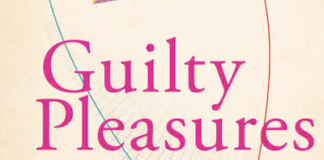1909: Maine enacts a citizen petition process through a constitutional amendment. It allows citizens to submit legislation, except in cases of constitutional amendments and bonds. Two years later, it was used to establish primaries for political parties, passing by a 3:1 margin.
1911-1946: A variety of laws were considered affecting taxes, child employment laws and police commissions, among others.
1971: An effort to repeal Maine’s income tax was routed, 190,261 to 63,393.
1977: An act to repeal a state property tax gained widespread approval.
Early ‘80s: Several laws designed to reduce the impact of inflation were presented to voters, as were attempts to eliminate moose hunting and to end the use of electricity produced by nuclear power plants. They failed.
1993: One of the more recent and controversial measures: implementing term limits on legislators and constitutional officers; Maine was the first state to do so. The effort came in response to John Martin holding the Speaker’s role in the State House for 19 years. It was followed by a ballot question the next year to impose term limits on members of Congress that was also passed, but later repealed.
1996-1997: Competing measures to ban clearcutting and promote sustainable forestry practices. Although the measure to promote sustainable forestry practices passed in 1996, it was carried over to the 1997 election where it failed.
1996: Campaign finance reform was overwhelming supported by voters who endorsed public financing of elections for candidates who agreed to spending limits.
Late ‘90s: Successive ballot questions to ban gay marriages, prohibit certain abortion procedures and allow terminal patients to die on their own terms failed while support for legalizing medical marijuana passed. In 2019, Gov. Janet Mills passed a state Death with Dignity bill. In 2012, gay marriage was affirmed by referendum.
2003:The first of many attempts to legalize gambling in Maine. The first ballot question would have allowed Maine tribes to operate casinos and dedicate a portion of the revenue for education and municipal revenue sharing. It failed by 2:1. The second question asked to allow slot machines at horse racing tracks with a portion of revenues earmarked for lower prescription costs and scholarships. It passed by only 30,000 votes.
2004:A ban on bear-baiting failed by 45,000 votes. Ten years later a similar question failed by a similar margin.
2007-2008: More gambling measures. One that would have allowed a Maine tribe to operate a race track and machines in Washington County failed as did a measure considered the next year to allow one company to operate a casino in Oxford County.
2009: Voters expanded medical marijuana rights, 332,038 to 232,024.
2010: A measure to allow a casino in Oxford County squeaked by with a margin of 4,000 votes while the next year an initiative to allow a casino in Lewiston failed, as did racino efforts elsewhere.
2012: Gay marriage appears on the ballot again, bypassing action by the Legislature. The vote to allow gay marriage licenses passed by 30,000 votes.
2015: A measure to strengthen Clean Election laws, including a requirement improving disclosure of who pays for political ads, passed by 20,000 votes.
2016: In a banner year for citizen initiatives, Ranked Choice Voting passes, establishing a ballot counting process where last-place candidates are eliminated until a candidate wins by majority. The new law affects congressional and legislative races.
2016: Despite significant opposition from business groups, an act to annually raise the state’s minimum wage from $7.50 an hour to $12 an hour by 2020 overwhelmingly passes.
2016: Voters also defeated a measure to require background checks for gun sales. And they approved by only 4,000 votes an act to allow recreational marijuana.
2017: Mainers vote overwhelmingly to expand Medicaid.
2020: Portland voters pass ballot measures adopting a $15 minimum wage and rent control.
2021: In an effort to scuttle CMP and Hydro Quebec’s New England Clean Power Connect transmission line, voters approved a measure to require legislative approval on such projects going forward and retroactively. The vote sets up a protracted battle in the courts.
2022: Portland voters are facing 13 ballot questions, ranging from city charter changes to implementing ranked-choice voting for city races to creating an ethics review board.








